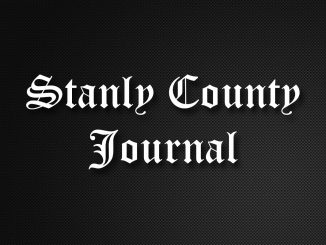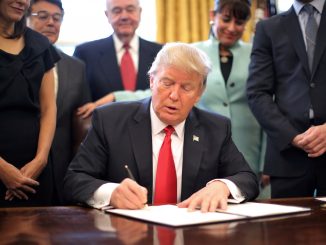
Fast… not the word you would use to describe Congress, but last week was a little different. I had the honor to meet and talk with racing legend Mario Andretti. For those of you who don’t know who he is, and to name just a few of his accomplishments, Mario won the Daytona 500, the Indianapolis 500 and the Indy Car National Championship four times, and he’s the only American to ever become Formula One Champion. For a kid from North Carolina who loved racing at every level, meeting Mario Andretti was a bucket list moment.
Andretti was in Washington with a group of advocates from the National Motorsports Coalition. As you know, our district is home to Charlotte Motor Speedway, most of the NASCAR team facilities and the best racing fans in the world. That’s why I was glad to have the chance to speak with NASCAR drivers and motorsports leaders — like past champions Kyle Busch and Brad Keselowski, and reigning NASCAR Champion Joey Logano — on the issues facing motorsports at all levels. This issue is important to me not just because I’m a fan or because North Carolina is the headquarters for NASCAR, but because motorsports has over a billion dollars of economic impact in our state each year.
Things in Washington continued to move fast on other fronts as House Democrats rammed through H.R. 1644, the Save the Internet Act. The irony of rushing a bill like this at warp speed? Despite the name, this bill would slam the brakes on your internet speed, make your monthly bill more expensive and allow the government to crush the innovations that made the internet what it is today.
Let’s hit pause and look back at what brought us to this vote. Historically, the Federal Communications Commission (FCC) has struck a very careful balance on its regulation of the internet. It was a national policy to preserve a free market for the internet “unfettered by Federal or State regulation.” The internet today is faster and better than ever because innovation is allowed and encouraged by a free market. This bill would restore the Obama-era “net neutrality” regulations that were in effect from 2015 to 2017.
You might be asking yourself, what does this mean for me? It means if this bill became law, the price of internet and how you use it would be regulated by unelected bureaucrats at the FCC who are not held accountable by the American people.
In addition, our rural communities would feel the most pain from this legislation — especially folks who rely on the internet to do business, employees who tele-work, students and teachers who use distance learning for critical STEM education and job-training programs, families who live apart and want to keep in touch, and doctors and patients who rely on tele-medicine. And by recategorizing the internet, the government would tax your internet and phone data plan — just like your cable bill.
I think there’s a better way. I believe we need to keep the internet tax-free. At the same time, we must focus attention on ensuring companies are not throttling the speed of your internet. We also need to cut red tape to advance the spread of broadband across rural America. In fact, as a leader on the Energy and Commerce Committee, I helped author the “Principles for Broadband Infrastructure,” which received widespread national and bipartisan support to accomplish these goals.
The internet doesn’t need to be saved by Washington — it needs to be saved from Washington. I’ll continue to work to keep the internet free from government overreach and open for Americans to access 21st Century opportunities and technology.



